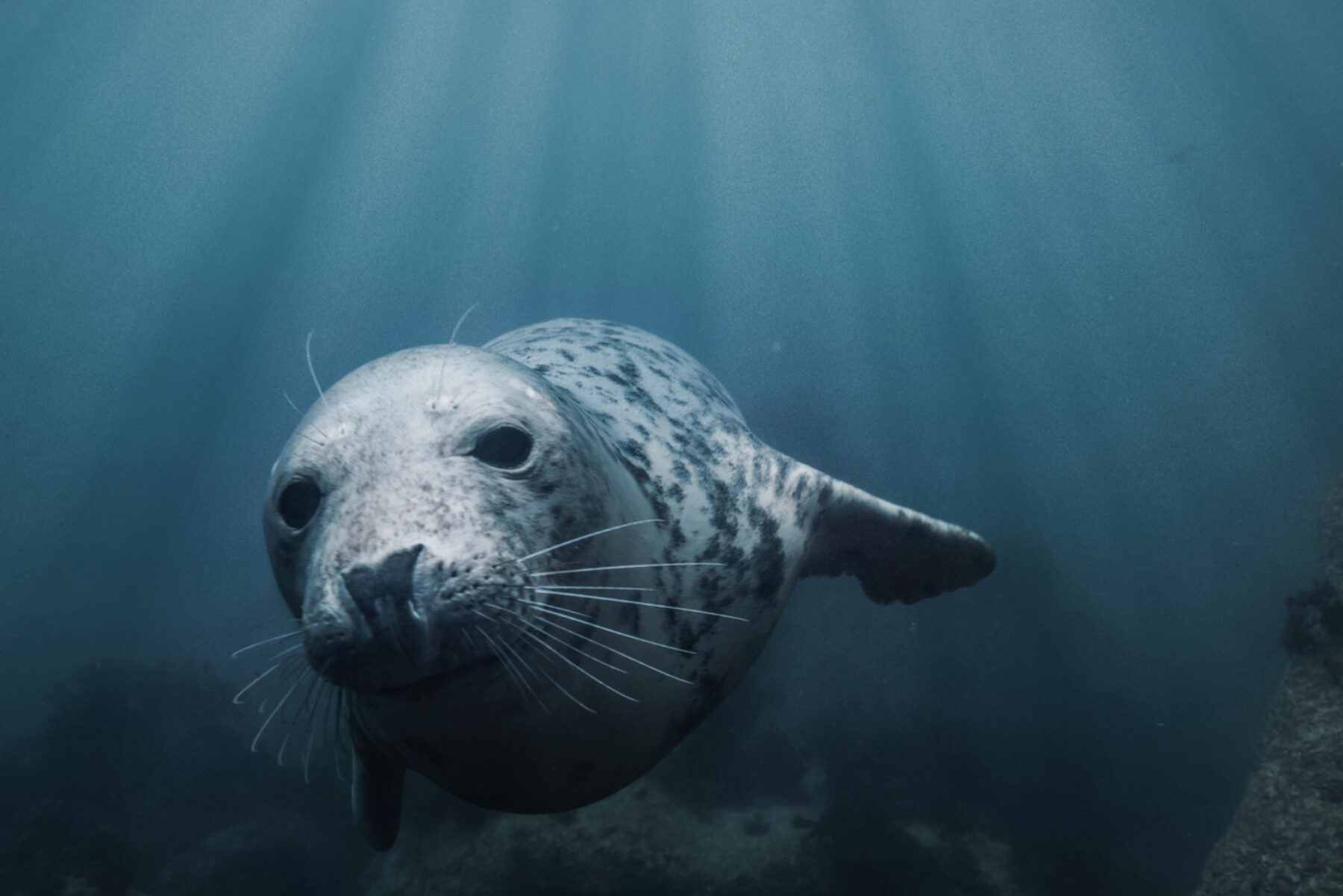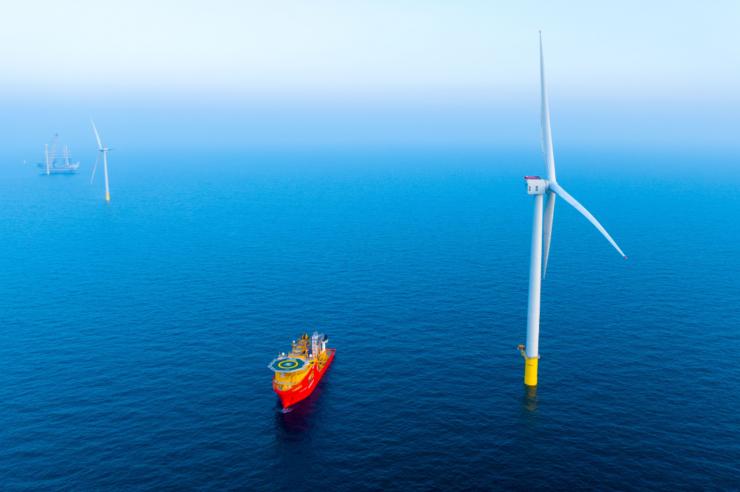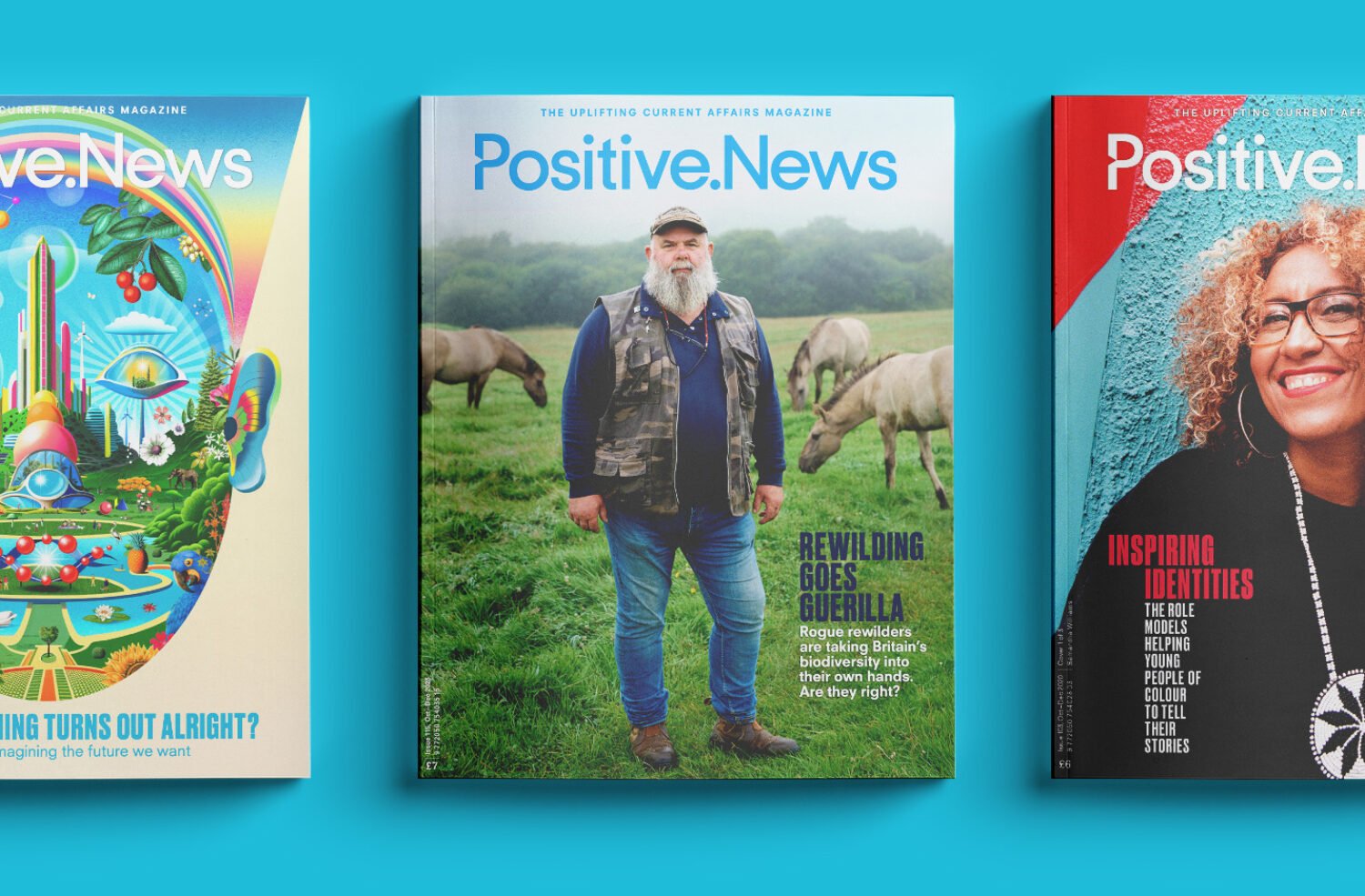The UK U-turned on deep-sea mining, cancer researchers found an AI ally, and France moved to strengthen abortion rights, plus more good news
This week’s good news roundup

A proposed moratorium on deep-sea mining has found support in Westminster in a surprising about-face by the UK government.
Rishi Sunak’s administration had drawn heavy criticism from environmentalists for previously backing exploitation of the seabed for critical minerals such as cobalt and lithium.
But environment secretary Thérèse Coffey announced on Monday that the government would add its voice to 24 other countries calling for a ‘precautionary pause’ on exploitation licences until the impact on marine ecosystems had been assessed.
The moratorium is on the agenda this week during ongoing negotiations in Jamaica at the International Seabed Authority, the global regulator for mining in international waters.
Conservation organisation the Blue Marine Foundation said deep-sea mining posed “an existential threat” to some of the planet’s least explored and most vulnerable habitats, with scientists voicing concerns about possible fuel spills, noise, light and dust storms.
“It is vital that we exercise the precautionary principle and find ways of producing minerals necessary for the transition to net zero that do not cause catastrophic and permanent destruction of fragile ocean biodiversity,” said Blue Marine CEO Clare Brook.
Image: Yannis Papanastasopoulos
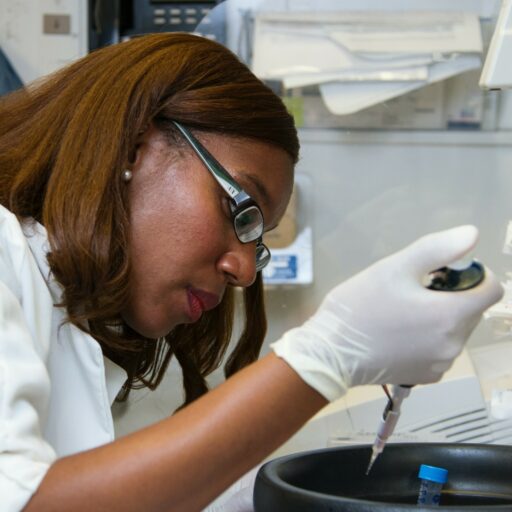
Artificial intelligence was in the spotlight this week as the UK hosted a summit on the breakthrough technology. Depending on your viewpoint, AI will be the saviour of mankind, or its downfall. But one thing looks certain – it beats a biopsy at detecting the aggressiveness of some cancers.
Researchers from the Royal Marsden NHS Foundation Trust and the Institute of Cancer Research (ICR) in England used AI algorithms to grade the aggressiveness of sarcoma tumours captured on CT scans.
They proved twice as accurate as a standard biopsy, a discovery that could help identify high-risk patients more quickly. Researchers hope the technique could eventually be applied to other cancers, benefiting thousands of patients a year.
“This kind of technology has the potential to transform the lives of people with sarcoma – enabling personalised treatment plans tailored to the specific biology of their cancer,” said Dr Paul Huang, group leader in molecular and systems oncology at the ICR. “It’s great to see such promising findings.”
Image: National Cancer Institute

A man with liver failure who was given months to live is still alive a year later after receiving a world-first experimental transplant.
Adam Eisenberg (pictured), 58, was diagnosed with liver cirrhosis and non-alcoholic fatty liver disease and told to prepare for the worst. But he was thrown a lifeline by the ‘DeFat’ study, a trial set up to explore a new method of storing donor livers – Normothermic Machine Perfusion (NMP) – which mimics conditions inside the body.
The research, ongoing at London’s Royal Free Hospital (RFH), is also looking at ways of treating fatty donor livers with drugs to make them suitable for transplant. Currently a third of donated livers have to be discarded due to excess fat.
The trial is randomised so Eisenberg doesn’t know if he received a liver assigned to NMP alone, or NMP plus defatting.
RFH transplant surgeon and DeFat study co-lead David Nasralla said the new methods could help address the shortage of suitable donor livers. “If defatted donor livers are well tolerated this could be a gamechanger for patients as this will potentially give us the ability to save more lives,” he added.
Image: Royal Free London

Wales followed England and Scotland in a shift away from convenience culture this week by outlawing several single-use plastics.
The ban came into force on Monday and includes drinking straws, cutlery, stirrers and plates. Foam or polystyrene cups and takeaway containers are also out, along with balloon sticks and plastic-stemmed cotton buds.
There’s more to come before the end of the current Senedd term in 2026. Next on the Welsh government’s plastics hit list are single-use carrier bags and polystyrene lids for cups and containers, as well as products made from ‘oxo-degradable’ plastic, which often fragments into micro-plastics but does not fully degrade. Ministers are also pondering a plastic-based wet wipes ban.
Jade Chapman from the charity Surfers Against Sewage told Positive News that “we’re pleased to see plastic on the agenda”. However, the group warned that the measures contained loopholes that would still allow plastic pollution to persist.
Here are 20 ways to go a beyond single-use plastic ban.
Image: American Heritage Chocolate

The number of ‘dirty’ cars on London’s streets has almost halved since the mayor’s controversial expansion of clean air measures, data revealed this week.
Sadiq Khan expanded the Ultra-Low Emission Zone (Ulez) to cover Greater London in August. Fresh findings show that 95 per cent of vehicles clocked driving in the city’s outer limits are now compliant with clean air standards, almost catching up with compliance rates in the inner city. In 2017, when the mayor announced a ‘toxicity charge’ as a prologue to Ulez, London-wide compliance was just 39 per cent.
The figures also reveal that the daily number of older, more polluting vehicles on the roads has fallen by 77,000 since June – a drop of 45 per cent.
The decision to expand Ulez drew ire from motorists who couldn’t afford to buy newer, cleaner vehicles, despite the mayor’s £2,000 scrappage scheme. However, Khan’s plans were deemed lawful by the UK’s high court. The mayor said that this week’s data vindicated the policy. “I am determined to do all I can to ensure that Londoners now and the next generation can grow up breathing cleaner air,” he said.
Image: Guillaume Meurice

Outdoor apparel giant Patagonia has expanded its mission to clean up the clothing industry by opening a new repair centre in the English capital.
The California-based brand has long advocated DIY repairs of its garments instead of buying new, and offers free postal repairs for fixes beyond the skills of novice seamsters.
It collaborated with Amsterdam-based United Repair Centre on an innovative scheme training and employing refugees to repair damaged clothing, and now the two have expanded the model to London in collaboration with garment makers Fashion-Enter.
United Repair Centre London opened on Wednesday at Fashion-Enter’s factory in the London borough of Haringey, safeguarding 15 UK jobs. People facing barriers to employment, including refugees, will be employed there. They’ll initially repair clothes for Patagonia’s UK customers, with three more brands set to join the initiative over the coming year. Pictured is You Hau Yong from the project.
Alex Beasley, Patagonia’s country manager for the UK, Ireland and Nordics, said: “With the launch of United Repair Centre London, we are looking to dramatically scale our impact and empower other clothing companies to move away from disposability and waste, and weave circularity into their business models.”
Image: F.J.West Films

Europe’s biggest conservation charity is making its network of UK nature reserves free to 16 to 24- year-olds from Monday in a bid to lure them back to nature.
The Royal Society for the Protection of Birds (RSPB) has some 200 reserves in the UK, with entrance fees at its 21 most popular sites averaging around £6 for adult non-members.
But the charity revealed this week that fees will be waived for visitors aged between 16 and 24 from 6 November in a two-year pilot. All they need to do is show a valid ID.
Alice Hardiman, director of campaigns at the RSPB, said: “Through consultation with our Youth Council members, and by taking into account statistics on young people’s engagement with nature, it became clear we need to do more to reach out to this key audience if we are to encourage everyone in society to act for nature.
“Young people face barriers accessing nature on a daily basis. Offering free entry to reserves for 16–24 year-olds is just a first step, showing our intent to transform the way we work with the younger generation.”
Image: Belinda Fewings
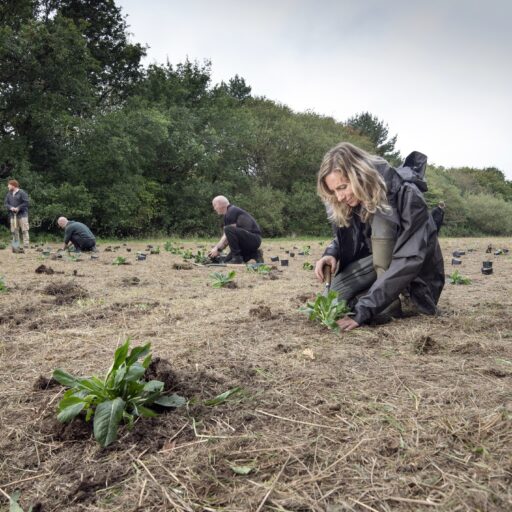
The UK’s Eden Project is staking a claim in the emerging habitat banking market with the announcement of its new Wildflower Bank.
Legislation coming into force in January means new building developments in England will have to improve habitats and boost biodiversity by at least 10%.
However, developers can also offset their commitment by buying Biodiversity Net Gain Units from landowners elsewhere who are looking to support nature recovery.
Cornwall-based Eden Project, an education charity with decades of experience preserving and creating wildflower landscapes across the UK, will work with land managers and landowners to create habitat banks for developers to invest in. Under the legislation, these improved habitats must be managed and safeguarded for a minimum of 30 years.
The Wildflower Bank will also create a network of seed hubs to harvest, store and distribute wildflower seed.
“As one of the UK’s leading environmental charities, it is important that the Eden Project leads the way in supporting habitat creation and restoration,” said the charity’s development director Dan James. “The Eden Project Wildflower Bank offers an exciting route for us to help make that happen.”

Women’s right to abortion will be enshrined in the French constitution from next year, President Emmanuel Macron pledged this week.
The French premier took to X, formerly known as Twitter, to make the announcement, writing: “In 2024, the right of women to choose abortion will become irreversible”.
The move follows Macron’s response in March to the rollback of abortion rights in the US. He said at the time he wanted to change the French constitution to “enshrine the freedom of women to have an abortion.”
Abortion was legalised in France in 1975 but there is nothing in the constitution guaranteeing it as a right.
The French government came up with a workaround to avoid the usually laborious process of a constitutional amendment. Macron will convene a congress of both houses of the French parliament. The amendment will pass with the support of three-fifths of members.
Image: Jacques Paquier

Graphic cigarette-style warnings on food depicting the impacts of global warming could help slash meat eating, say researchers from Durham University’s Department of Psychology.
Their study tested three labels depicting climate, health or pandemic risks associated with meat consumption on 1,001 carnivorous adults. The pictures – which included ragged tree stumps with a smoking factory in the background, and caged animals in a wet market – reduced choices of meat-based meals by 7 to 10%.
“We already know that eating a lot of meat, especially red and processed meat, is bad for your health and that it contributes to deaths from pollution and climate change,” said study co-author Dr Milica Vasiljevic. “Adding warning labels to meat products could be one way to reduce these risks to health and the environment.”
Image: Sonny Mauricio

How do you combat the climate crisis, beat global malnutrition, and create a shift in farming in one single meal?
This week, Positive News reported on the tiny but mighty solution – and the vital small policy change – that could trigger a ‘cascade of decarbonisation’ using the humble bean.
Read the full story here.
Image: Kei Uesugi
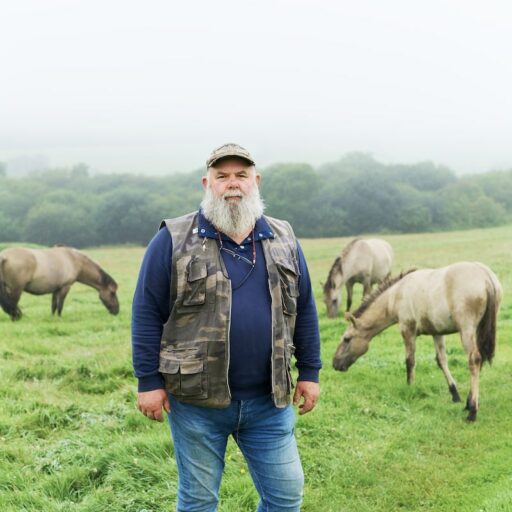
Reintroducing lost species into nature-depleted Britain is ‘not a priority’, the UK government said last week.
Enter a growing movement of guerrilla rewilders, who are secretly breeding butterflies, birds, and beavers, and illegally releasing them across the country.
Are they halting the tide of extinction, or doing more harm than good? Read the full story here.
Image: James Bannister
Main image: Wirestock/iStock
Get your weekly fix of good news delivered to your inbox every Saturday, by signing up to the Positive News email newsletter.
You’re the solution that Positive News needs
Our small, dedicated team is passionate about building a better alternative to the negative news media. And there’s never been a greater urgency to our mission.
But to invest in producing all the solutions journalism that the world is longing for, we need funding. And because we work in your interests – not those of a wealthy media mogul or corporate owner – we’re asking readers like you to get behind our team, by making a regular contribution as a Positive News supporter.
Give once from just £1, or join 1,400+ others who contribute an average of £3 or more per month.
Join our community today, and together, we’ll change the news for good.
